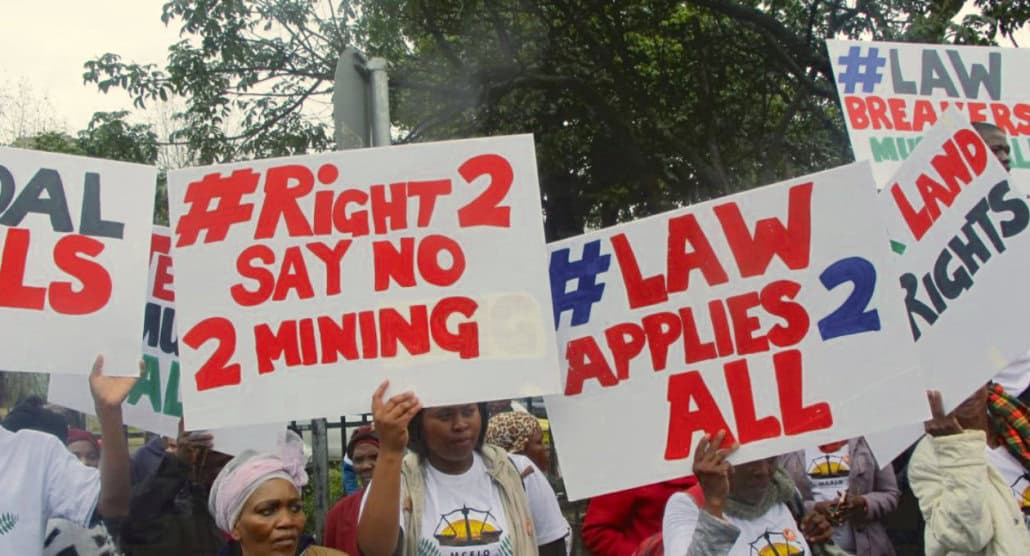Image: groundWork
A new policy brief, published by Corruption Watch (CW) under the auspices of the Rallying Efforts to Accelerate Progress in Africa (REAP) project, calls for the enactment of Interim Protection of Informal Land Rights Act of 1996 (IPILRA) regulations for obtaining free, prior, and informed consent (FPIC), thus emphasising the importance of meaningful consultation with relevant and affected parties in South Africa’s extractive sector.
REAP is implemented by CW in collaboration with Transparency International, and aims to address social inequalities in mining host communities in the country.
To this end, CW conducted 7 665 online surveys through Vodacom between 2021 and 2022, to assess levels of community consultation and involvement in decision-making throughout the mining lifecycle. The results revealed that half of the 7 665 respondents were unaware of or did not participate in consultation meetings with local mining companies, often due to a lack of awareness or because meetings were held only with community leaders, excluding broader community input.
Accordingly the brief considers several amendments that are necessary to strengthen the country’s land and mining policies which promote the active involvement of rural communities as a whole in the decision-making processes.
It also provides an overview of the legal situation regarding indigenous and/or customary land rights and mining activities in South Africa, and then highlights the different levels of engagement (consultation and consent) required by two different pieces of legislation (IPILRA and the Mineral and Petroleum Resources Development Act of 2002, or MPRDA). It is in this section where the concept of FPIC is discussed.
Despite its transformative agenda, writes mining and labour law specialist Dr Godknows Mudimu in a recent research paper prepared for CW, “the MPRDA as the main piece of legislation governing mining lacks sufficient measures to ensure meaningful participation of historically disadvantaged groups, particularly women”. Women, youth, and the elderly throughout South Africa’s mining-affected communities are still disproportionately affected by exclusionary practices around consultations on land matters, writes Mudimu. “There is a direct correlation between meaningful consultations and the outcomes for communities involved.”
In another recent research report for CW, Dr Aninka Claassens argues that “the MPRDA cannot be read to trump IPILRA rights”. This statement arises from two crucial court judgments in October and November 2018, both of which found that the MPRDA must be read concurrently with IPILRA – these are the Maledu and Baleni judgments. Maledu finds that the consent of informal land rights holders must be obtained before they can be deprived of their land rights. Baleni, meanwhile, finds that the state may not grant mining licenses before the consent of informal land rights holders has been obtained, and unless they have been given access to all information contained in mining rights applications, including social and labour plans, “provided that sensitive financial information may be redacted”.
The focus of this new policy brief, therefore, is on exposing the gaps in these policies and how they cultivate the ground for the perceived exclusionary patterns in decision-making around how mining affects communities.
Finally, the brief makes recommendations on how the much-needed consent regulations should look, once developed.
Read it below, or download it.

